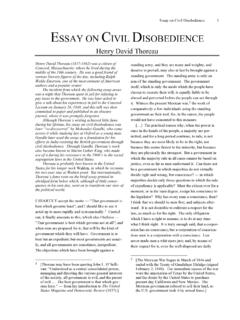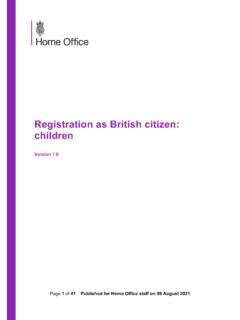Transcription of REPORTABLE IN THE SUPREME COURT OF INDIA CIVIL …
1 1 REPORTABLEIN THE SUPREME COURT OF INDIACIVIL APPELLATE JURISDICTIONCIVIL APPEAL OF 2014 RAVINDER KAUR GREWAL & (S)VERSUSMANJIT KAUR & (S)WITHSPECIAL LEAVE PETITION ( CIVIL ) 8333 OF 2014 RADHAKRISHNA REDDY (D) THROUGH (S)VERSUSG. AYYAVOO & (S)J U D G M E N TARUN MISHRA, question of law involved in the present matters is quitesignificant. Whether a person claiming the title by virtue of adversepossession can maintain a suit under Article 65 of Limitation Act, 1963(for short, the Act ) for declaration of title and for a permanentinjunction seeking the protection of his possession thereby restrainingthe defendant from interfering in the possession or for restoration ofpossession in case of illegal dispossession by a defendant whose title hasbeen extinguished by virtue of the plaintiff remaining in the adverse2possession or in case of dispossession by some other person?
2 In otherwords, whether Article 65 of the Act only enables a person to set up aplea of adverse possession as a shield as a defendant and such a pleacannot be used as a sword by a plaintiff to protect the possession ofimmovable property or to recover it in case of dispossession. Whether heis remediless in such a case? In case a person has perfected his titlebased on adverse possession and property is sold by the owner after theextinguishment of his title, what is the remedy of a person to avoid saleand interference in possession or for its restoration in case ofdispossession?
3 , adverse possession is a pretty old concept of law. It isuseful but often criticised concept on the ground that it protects andconfers rights upon wrongdoers. The concept of adverse possessionappeared in the Code of Hammurabi approximately 2000 years beforeChrist era. Law 30 contained a provision If a chieftain or a man leaveshis house, garden, and field .. and someone else takes possession of hishouse, garden and field and uses it for three years; if the first ownerreturns and claims his house, garden, and field, it shall not be given tohim, but he who has taken possession of it and used it shall continue touse it.
4 However, there was an exception to the aforesaid rule: for asoldier captured or killed in battle and the case of the juvenile son of the3owner. In Roman times, attached to the land, a kind of spirit that wasnurtured by the possessor. Possessor or user of the land was consideredto have a greater ownership of the land than the titled owner. Weinherited the Common Law concept, being a part of the erstwhile Britishcolony. William in 1066 consolidated ownership of land under the Statute of Westminster came in 1275 when land records were veryoften scarce and literacy was rare, the best evidence of ownership waspossession.
5 In 1639, the Statute of Limitation fixed the period forrecovery of possession at 20 years. A line of thought was also evolvedthat the person who possesses the land and produces something ofultimate benefit to the society, must hold the best title to the laws relating to land have been enacted in the spirit to conferthe title on the actual tiller of the land. The Statute of Wills in 1540allowed lands to be passed down to heirs. The Statute of Tenures enactedin 1660 ended the feudal system and created the concept of the title.
6 Theadverse possession remained as a part of the law and continue to concept of adverse possession has a root in the aspect that it awardsownership of land to the person who makes the best or highest use of theland. The land, which is being used is more valuable than idle land, isthe concept of utilitarianism. The concept thus, allows the society as awhole to benefit from the land being held adversely but allows asufficient period for the true owner to recover the land. The adverse4possession statutes permit rapid development of wild lands with theweak or indeterminate title.
7 It helps in the Doctrine of Administrationalso as it can be an effective and efficient way to remove or cure clouds oftitle which with memories grow dim and evidence becomes unclear. Thepossessor who maintains and improves the land has a more valid claimto the land than the owner who never visits or cares for the land anduses it, is of no utility. If a former owner neglects and allows the gradualdissociation between himself and what he is claiming and he knows thatsomeone else is caring by doing acts, the attachment which one developsby caring cannot be easily parted with.
8 The bundle of ingredientsconstitutes adverse possession. have heard learned counsel appearing for the parties at lengthand also the Amicus Curiae, Shri Patwalia and Shri Huzefa Ahmadi,senior counsel. Various decisions of this COURT and Privy Council andEnglish Courts have been cited in which the suit filed by the plaintiffbased on adverse possession has been held to be maintainable fordeclaration of title and protection of the possession or the restoration ofpossession. Nature of right acquired by adverse possession and evenotherwise as to the right to protect possession against unlawfuldispossession of the plaintiff or for its recovery in case of illegaldispossession.
9 Dilating upon the issue, it is necessary to refer the decisionin Gurudwara Sahab v. Gram Panchayat Village Sirthala (2014) 1 SCC669 in which this COURT has referred to the decision of the Punjab andHaryana High COURT in Gurudwara Sahib Sannauli v. State of Punjabsince reported in (2009) 154 PLR 756, to opine that no declaration of titlecan be sought by a plaintiff on the basis of adverse possession inasmuchas adverse possession can be used as a shield by a defendant and not asa sword by a plaintiff. This COURT while deciding the question gave theonly reason by simply observing that there is no quarrel with theproposition to the extent that suit cannot be based by the plaintiff onadverse possession.
10 Thus, this point was not contested in GurudwaraSahib v. State Gram Panchayat Village, Sirthala (supra) when this Courtexpressed said is pertinent to mention here that before the aforesaid decision ofthis COURT , there was no such decision of this COURT holding that suitcannot be filed by a plaintiff based on adverse possession. The views tothe contrary of larger and coordinate benches were not submitted forconsideration of the Two Judge Bench of this COURT which decided theaforesaid Three Judge Bench decision in Sarangadeva Periya Matam &Anr.
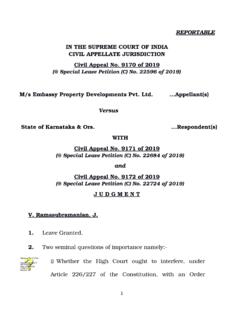
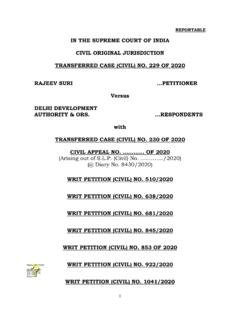
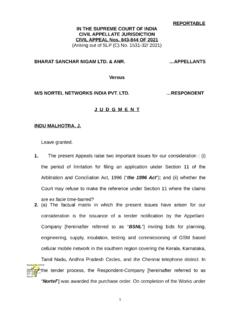
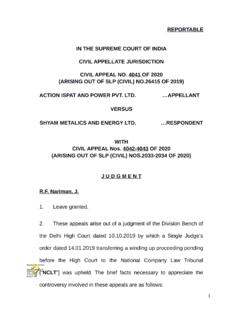
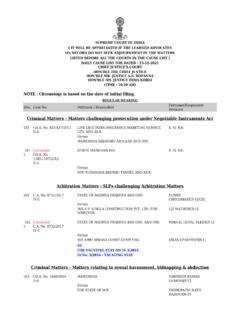
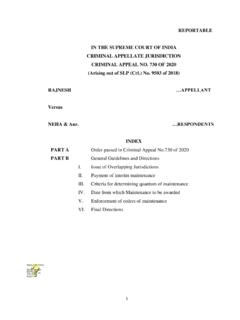
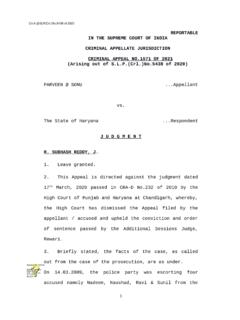
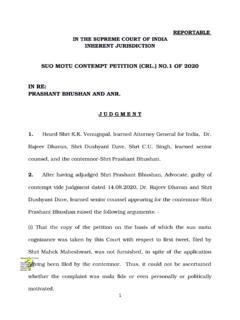
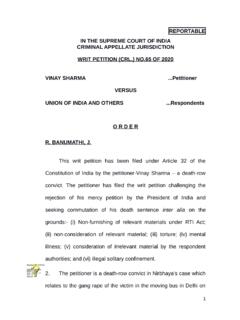
![[DEFAULT / OTHER MATTERS] [SERVICE/COMPLIANCE] …](/cache/preview/4/8/a/c/d/7/0/e/thumb-48acd70e206083f8f3d37421a64ec859.jpg)



